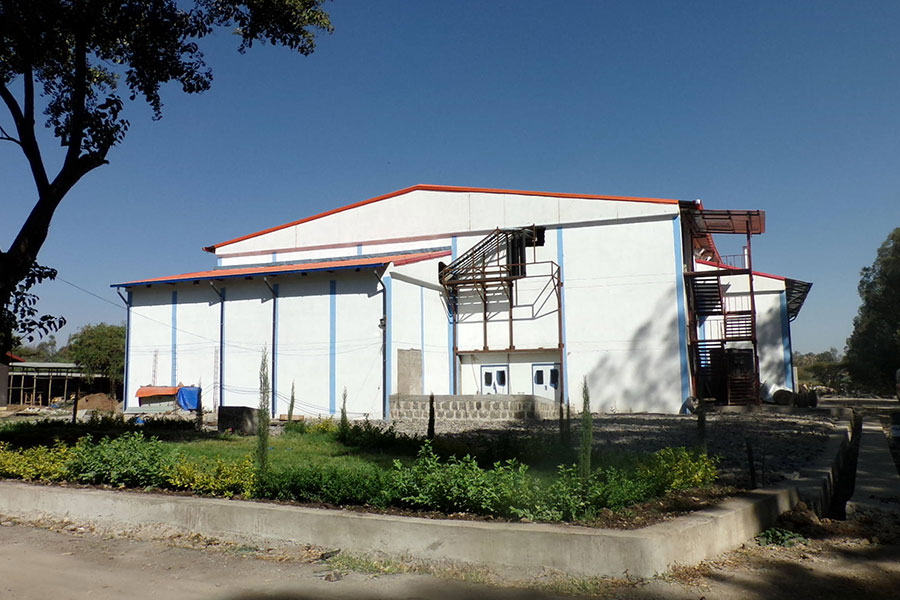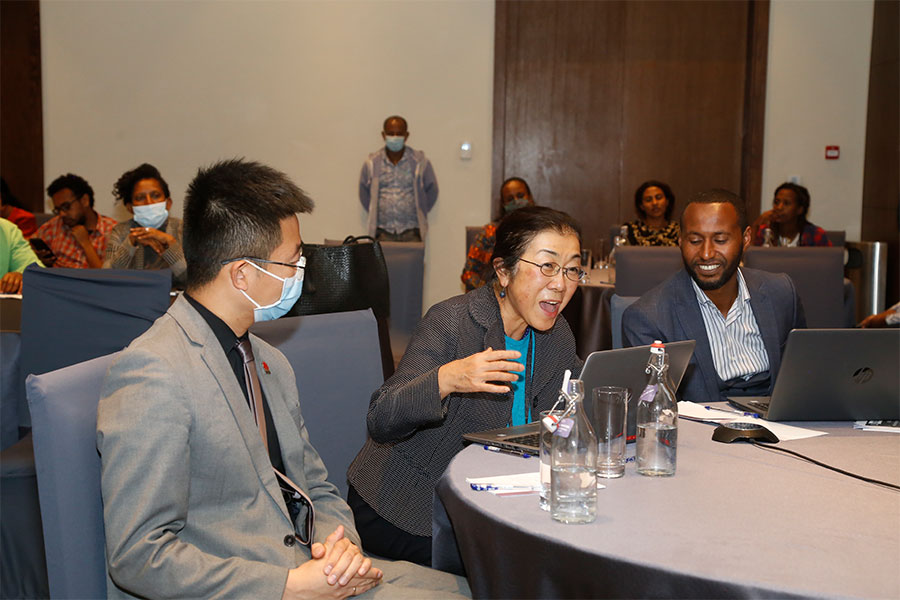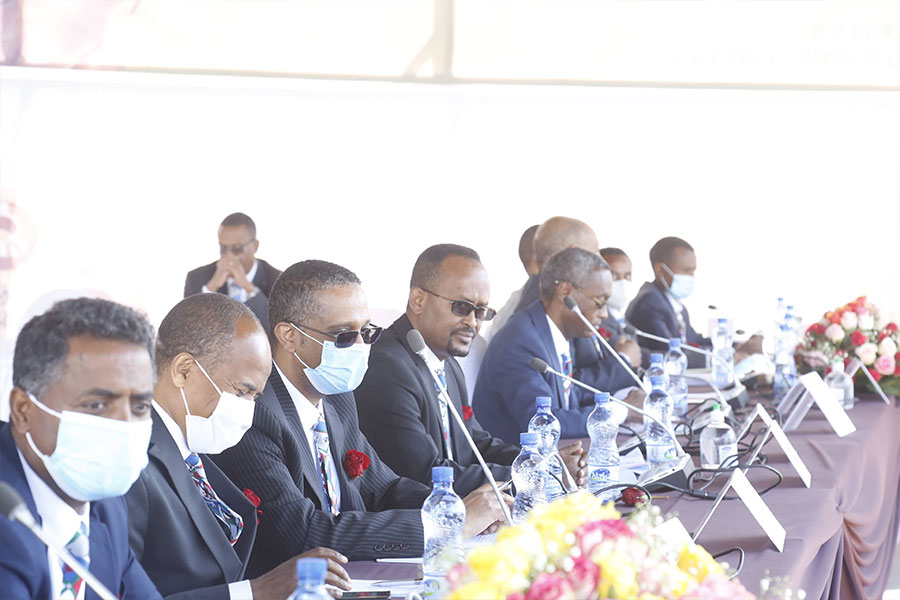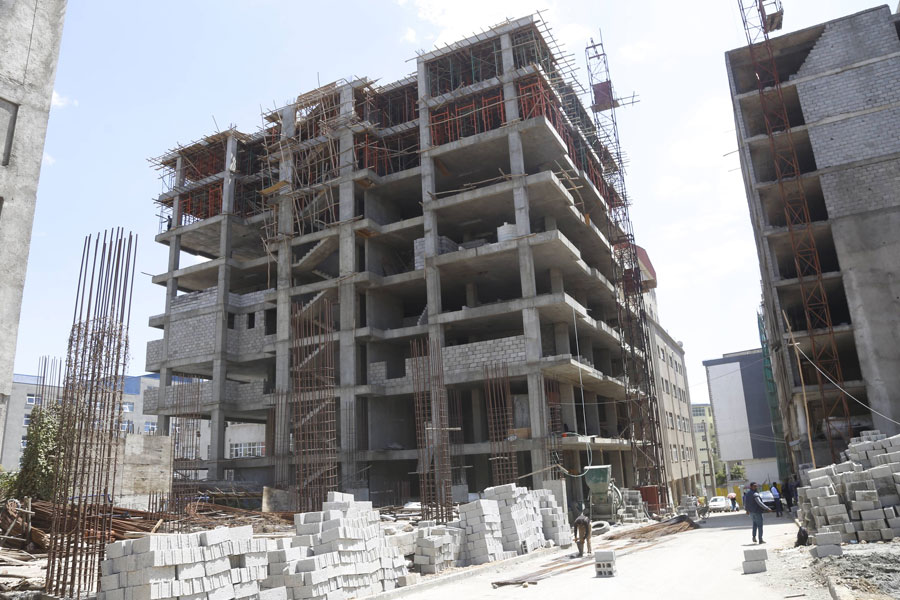
Ethiopia’s sovereign fund got its top executive after the Prime Minister appointed Mamo Mihretu, his policy advisor and a chief trade negotiator, to the position.
Mamo has been appointed as the founding chief executive officer (CEO) of the Ethiopian Investment Holdings (EIH), a state-owned investment company. It was established last month by a decree of the Council of Ministers, where the Prime Minister chairs a board of directors of six.
The Fund has an authorised capital of 100 billion Br, of which 25 billion Br is to be paid up. It sources funding from a pool of state-owned assets it administers; returns and revenues on the investment of the proceeds of its assets; sales of its assets and enterprises; and loans and other facilities such as bonds. It is structured as a sovereign wealth fund, taking cues from 10 similar funds in Africa, according to Blen Mammo, senior economic advisor at the Ministry of Finance.
Mamo has over 16 years of experience in economic policy, legal, and logistics sector reforms. A father of one, he was one of the "young liberal technocrats" with international experience to join Prime Minister Abiy Ahmed's (PhD) administration. Eyob Tekalign (PhD), a state minister for Finance, and Abebe Abebayehu, head of the Investment Commission during the first two years of post-2018, joined the administration with the promise of reforming a state-led economy to a competitive market fuelled by private capital.
Before joining public service in 2018, Mamo led the World Bank's work in Ethiopia in finance, competitiveness and trade for eight years. He has been serving in the Prime Minister's Office, mainly negotiating trade matters such as the Africa Continental Free Trade Area (AfCFTA). Mamo studied law at Addis Abeba University before completing a post-graduate programme in law at the universities of Pretoria and Amsterdam. He also took leadership and economic development courses at Harvard University’s Kennedy School of Government.
The EIH has applied to join the International Forum of Sovereign Wealth Funds (IFSWF), a consortium of 40 that includes some of the world's largest sovereign wealth funds such as the China Investment Corporation, and the Kuwait and Abu Dhabi investment authorities. An understanding has been reached, and the company will join as an associate member, according to Blen.
The Ethiopian Investment Holdings plans to take two dozen state-owned enterprises (SOEs) under its wing. State-owned assets and enterprises, share companies and financial institutions, land and properties under state ownership, as well as other tangible and intangible assets in which the federal government has stakes, are assets likely to fall under its management. It is undergoing portfolio management to identify which enterprises to take on during its first phase of operations, Blen disclosed to Fortune.
"We want to ensure that our wealth is fully utilised," said Blen.
Close to 36 public enterprises are under the purview of the Public Enterprises Holding & Administration Agency. About half of these, including the Ethiopian Railway Corporation (ERC), the Ethiopian Electric Power (EEP) and the Land Bank & Development Corporation (LBDC), came under its supervision earlier this year.
According to sources close to the issue, the Agency will not be dissolved. It will continue to administer state-owned enterprises that will not be transferred to the Ethiopian Investment Holdings.
However, experts caution there needs to be a justifiable rationale for investing in certain areas.
"Previously, market failure was used as a justification for government investment in certain sectors,” said Abdulmenan Mohammed, a financial analyst.
He observed most of these investments have been "riddled" with corruption, waste and inefficiency, casting doubt on the state's ability to run a company of this magnitude.
The Fund is mandated to take on divestment ventures both domestic and overseas. Dividends from enterprises under the Fund are exempt from taxes and duties, excluding sub-funds and companies where the EIH invests.
National wealth funds such as India and the United Arab Emirates (UAE) are granted tax exemptions on investments made on infrastructure. Last year, the Abu Dhabi Wealth Fund received exemptions for its investments in textile parks, agriculture markets, telecom towers, and electricity generation plants to be made before 2024. Although such preferential treatment helps companies stay competitive in the global market, it might crowd out private businesses that serve the domestic market, says Million Kibret, managing partner of BDO Ethiopia, an investment advisory firm operating under BDO East Africa.
PUBLISHED ON
[ VOL
, NO
]

Fortune News | Jan 12,2019

View From Arada | Dec 04,2022

Radar | Nov 27,2021

Editorial | Mar 05,2022

Fortune News | Dec 25,2021

My Opinion | Jun 20,2020

Agenda | Oct 17,2021

Commentaries | Feb 05,2022

Radar | Mar 20,2021

Radar | Sep 10,2021

Dec 22 , 2024 . By TIZITA SHEWAFERAW
Charged with transforming colossal state-owned enterprises into modern and competitiv...

Aug 18 , 2024 . By AKSAH ITALO
Although predictable Yonas Zerihun's job in the ride-hailing service is not immune to...

Jul 28 , 2024 . By TIZITA SHEWAFERAW
Unhabitual, perhaps too many, Samuel Gebreyohannes, 38, used to occasionally enjoy a couple of beers at breakfast. However, he recently swit...

Jul 13 , 2024 . By AKSAH ITALO
Investors who rely on tractors, trucks, and field vehicles for commuting, transporting commodities, and f...

Oct 11 , 2025
Ladislas Farago, a roving Associated Press (AP) correspondent, arrived in Ethiopia in...

Oct 4 , 2025
Eyob Tekalegn (PhD) had been in the Governor's chair for only weeks when, on Septembe...

Sep 27 , 2025
Four years into an experiment with “shock therapy” in education, the national moo...

Sep 20 , 2025
Getachew Reda's return to the national stage was always going to stir attention. Once...